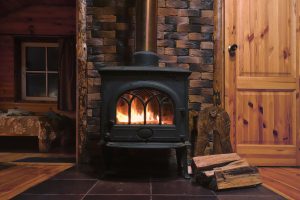No Tools Left in the Van: Plumbers and Heating Engineers reporting huge rise in tool thefts from vans and building sites.
Plumber incomes have been seriously damaged this year by the tool thefts from vans and job sites this year. 27% of Plumbers are reporting the loss of tools which damaged their ability to earn a living.
The research carried out by Warm.co.uk suggests that thefts are on the rise. The Plumbers are fully aware of the damage to their livelihoods from the tool thefts.
The research indicated that tool boxes were the most stolen item. In addition, power tools and ladders appeared on the list. For Plumbers the toolboxes in particular are their livelihoods and the theft is having a huge impact on their ability to earn a living as a result.
Matt from Birmingham: “I empty the van every night of my expensive tools, but my toolbox is a pain to move. All my friends have had things taken, so I won’t risk leaving everything.
Recent research has suggested tool theft in the UK costs £94million per annum, a figure which promoted the survey. 562 Plumbers were polled by Warm.co.uk and asked if they were the subject of theft this year. The result was that 27% said they had.
Most common tools stolen in the Warm.co.uk survey were:
- Tool boxes
- Power tools
- Ladders
In addition, TV celebrities aren’t beyond the criminals reach either. A noteworthy example being DIY SOS who were targeted in July and lost £4,000 in tools from a van in West Bromwich. A BBC spokesman at the time had said the whole thing took “10 or 20 seconds”.
Engineer from Bradford, Andrew: “A portable rock crusher machine was taken from the building site over the road. This machine is the size of 2 static caravans, weighs 30 tonnes. No one saw a thing – it’s amazing how they get away with it!”
Our Advice
The advice from Warm.co.uk is simple, ”Keep all tools close and if possible do not leave in your van unattended. Thieves have a good chance of getting into any van, so either deadbolt all doors, or remove all valuables before leaving it anywhere.
Are You Ready To Get Up To 3 Quotes To See How Much Money You Could Save?


 themselves.”
themselves.” The UK is in danger of running so low on plumbers that the country faces the biggest crisis in 20 years, say heating and boiler specialists Warm.co.uk.
The UK is in danger of running so low on plumbers that the country faces the biggest crisis in 20 years, say heating and boiler specialists Warm.co.uk.  We struggle to recruit. I hate letting people down by not being able to come out sooner. I’d ideally like to expand business by employing more people. There are three of us at the moment and I can’t find anyone else even though the workload is growing.”
We struggle to recruit. I hate letting people down by not being able to come out sooner. I’d ideally like to expand business by employing more people. There are three of us at the moment and I can’t find anyone else even though the workload is growing.”

 totally shocked to discovered somebody had come on to their land and stolen 1.1 tonnes of oil.
totally shocked to discovered somebody had come on to their land and stolen 1.1 tonnes of oil. Speaking to dozens of farmers over the winter, Warm.co.uk found that over 70% used “alternative” fuels to heat their homes. A quarter of those said they had started to do so in the last two years. Many of these agricultural workers said that they used wood. These are usually logs from their own land or sourced locally. They burn them on an open fire or in a stove. Generally the central heating is only used for 3 months of the year. Just 15% use it for 2 months.
Speaking to dozens of farmers over the winter, Warm.co.uk found that over 70% used “alternative” fuels to heat their homes. A quarter of those said they had started to do so in the last two years. Many of these agricultural workers said that they used wood. These are usually logs from their own land or sourced locally. They burn them on an open fire or in a stove. Generally the central heating is only used for 3 months of the year. Just 15% use it for 2 months. “People outside the industry forget that farmers are modern people too, and like their home comforts as much as the next office worker,” says Warm.co.uk’s Jonathan Ratcliffe. “So you’ll see a modern, well-serviced central heating system in many a farm house.”
“People outside the industry forget that farmers are modern people too, and like their home comforts as much as the next office worker,” says Warm.co.uk’s Jonathan Ratcliffe. “So you’ll see a modern, well-serviced central heating system in many a farm house.” system as well as good insulation.
system as well as good insulation. Heating Exhibition (
Heating Exhibition ( According to the HHIC, there are around nine million inefficient boilers throughout the UK. The majority of these appliances are over twenty years old. Although they carry on working, they are very inefficient. This is obvious when compared to new modern boilers on the market today.
According to the HHIC, there are around nine million inefficient boilers throughout the UK. The majority of these appliances are over twenty years old. Although they carry on working, they are very inefficient. This is obvious when compared to new modern boilers on the market today.

